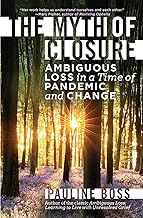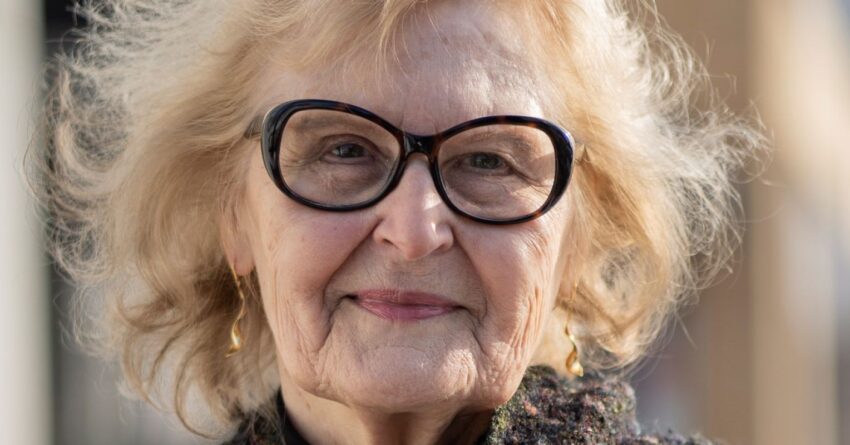%20%20Headshot.jpg?itok=W1A9BpYC)
Dr. Pauline Boss
Source: Pauline Boss / Used with permission
The COVID-19 pandemic has brought multiple changes to our lives, for many of us have lost loved ones, jobs, and familiar routines. According to family psychologist Pauline Boss, PhD, we’ve suffered the “the ultimate loss: the loss of trust in the world as a safe and predictable place”(2022, p. 4).
What we’re experiencing, Dr. Boss says, is “ambiguous loss, an unclear loss of not knowing” which produces “high anxiety and confusion and feelings of helplessness” (2023). After COVID-19, we’re suffering from what she calls “abstract loss, a loss that can’t be quantified.” We’re constantly on edge because we don’t know what to expect.
Dr. Boss, who identified the concept of ambiguous loss (2000), is Professor Emeritus of Psychology at the University of Minnesota, and the author of The Myth of Closure: Ambiguous Loss in a Time of Pandemic and Change (2022). She now trains therapists around the world about how to deal with ambiguous loss from wars and natural disasters in Ukraine, Turkey, Syria and more, wherever families have loved ones that are missing.

Source: Pauline Boss / Used with permission
After the epic losses, ambiguous and clear, from COVID-19, she says, we will never be the same. “We will not have closure. Loss has left its mark on us and changed the ways we think and live” (2022, p. 68). Yet, there are steps we can take to deal with ambiguous loss.
5 Steps for Dealing With Ambiguous Loss
1. Cultivate Community. The COVID-19 pandemic undermined our sense of community, the circle of relationships vital to our well-being. U.S. Surgeon General Vivek Murthy, MD, reports (2023) that we’re experiencing an epidemic of loneliness. As he explains, our nervous system is much the same as in early hunter-gatherer times when group membership was essential for survival: “That’s why we see such an impact of loneliness and disconnection on physical illness and mental illness” (Cohen, 2023). According to Dr. Boss, we all need a “psychological family,” people we can count on to support us, whether actual relatives or a chosen family of friends.
Research has connected our social network with psychological well-being, revealing how we need a range of “relational diversity,” from close relationships to “weak social ties” (Collins, Hagerty, Quoidbach, Norton, & Brooks, 2022). As psychologist Barbara Fredrickson, PhD has found, a smile, eye contact, or kind word to anyone we encounter in daily life can benefit both the giver and receiver. These “micro-moments of connectivity” raise our mood, relieve stress, and reduce inflammation to promote greater physical and emotional health (Fredrickson, 2013).
Because of COVID-19 restrictions, Dr. Boss points out, we’ve gotten out of the habit of relating to people. “You need to pick yourself up and go out and make new friends,” she says. “Find somebody to have lunch with or to go for a walk with, somebody to connect with.”
2. Find Something You Can Control. We all need stability and continuity in life. From our earliest days, according to psychiatrist John Bowlby (1969, 1980), we need the stability of secure attachment, a warm and predictable relationship with caregivers that provides a solid foundation for our lives. The COVID-19 pandemic has undermined our sense of stability. Dr. Boss recommends finding something, even a small thing, we can control, like people did when they baked bread during the pandemic. When Nelson Mandela was imprisoned for 27 years, one of the few things he could control was growing a garden. Cultivating tomatoes, onions, and squash, watching them grow, harvesting them, and sharing them with others brought him hope (1994).
3. Balance Change With Continuity. Our current world is filled with stressful changes, from the pandemic to natural disasters, wars, and political uncertainty. We need to return to familiar rituals that provide a sense of continuity—the weddings, graduations, and celebrations we lost during years of isolation. Dr. Boss says these rituals are important: “We may think they’re frivolous, but they’re not. They are markers of our life’s development and continuity in our lives.”
4. Become More Flexible. To deal with uncertain times, we need to develop our tolerance for ambiguity by doing something different, meeting someone new. Research has shown that people with a low tolerance for ambiguity perceive uncertainty as threatening (MacDonald, 1970). Dr. Boss says that we can better tolerate ambiguity by having small things in our lives that we can control and by “finding new trails to walk.” By stepping out of our comfort zone to try something new, we can combine the challenge of the new with a sense of choice and personal empowerment.
5. Find Meaning. As we face ambiguous loss, we cannot go back to “normal.” But we can find new meaning. “We need to make some sense of our situation,” Dr. Boss says; “meaning is finding a new purpose in your life.” She finds hers in continuing to work, to write, to do humanitarian work—and have fun with family and friends.
We live in uncertain times, with challenges all around us. Yet as we begin reconnecting with community, developing flexibility, balancing change with continuity, and finding meaning in the daily rhythm of our lives, we can build greater well-being for ourselves and with one another.
_____________________________________________________________________
This post is for informational purposes and should not substitute for psychotherapy with a qualified professional.
© 2023 Diane Dreher, All Rights Reserved.
